As we bid farewell to 2023, we took the opportunity to reflect on how the Talis Aspire resource list management system connected libraries with faculty and students this year via their course lists. Read on for a round-up of how Talis Aspire supported student reading this year, new developments to the platform, new university partners we welcomed, and what to expect from Talis Aspire in 2024.
Faculty and other list creators at institutions created over 1.5 million resource lists on Talis Aspire in 2023 alone – that’s a lot of reading! These lists were accessed by over 37 million students, connecting them with over 53 million learning resources. Furthermore, students set 1.1 million reading intentions on the Talis Aspire platforms, helping hone their academic reading and study skills.
Talis Aspire continues to be a preferred resource list management for libraries not just in the UK but around the world. It works flexibly with all major library management systems (including ExLibris Alma, OCLC WMS , EBSCO FOLIO, Koha and more) to embed the library in the heart of teaching and learning. In addition to our 100 strong customer base, we welcomed new universities to the Talis Aspire community in 2023, including Loughborough University, University of North Alabama, Douglas College and University of Kentucky.
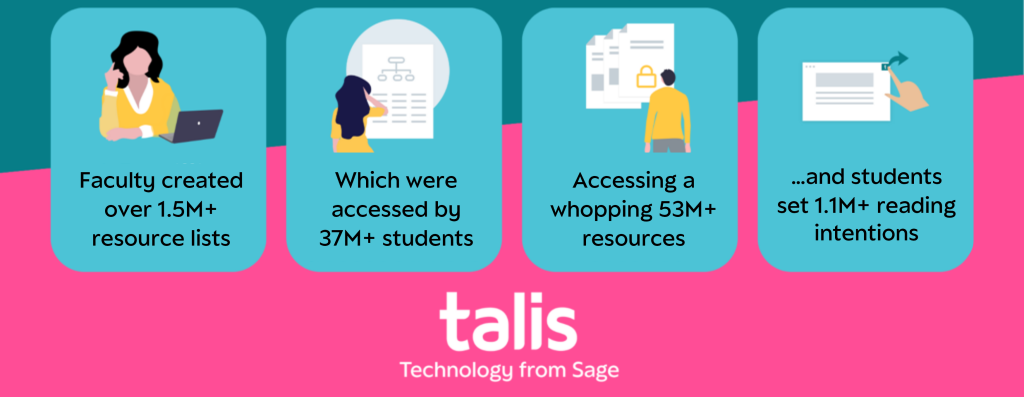
Curating a pedagogically robust course resource list makes all the difference to both student enjoyment and success. However, curating resource lists for modules, courses, extra curricular training or more takes huge amount of knowledge and expertise. The Talis Aspire community chose some of the best resource lists created on Talis Aspire this year, based on their use of structure, signposting, diversity of resources, and more. Browse the list below for just a taster of how Talis Aspire helps teachers do their best work:
Demands on the library are increasing and evolving. We recognized that Talis Aspire must too evolve to best support librarians, so we stepped up product development with a brand new product team and increased resource in 2023. Below is an overview of three exciting areas of development to the Talis Aspire platform in 2023:
Talis Aspire launched new integrations with library discovery services Primo, WorldCat and ESBCO Discovery Service (EDS), followed by Summon. These integrations enables users to search for resources via your library discovery system (i.e. your library’s existing internal holdings, licenses and subscriptions), directly within Talis Aspire. The flexibility of Talis Aspire being ILS-agnostic with its integrations means that, no matter which discovery system the library uses:
We undertook an intense customer listening exercise and grouped customer feedback from the last few years into key themes to build into the Talis Aspire product roadmap. The themes included list editing, reviews, self-service, analytics & reporting, and customization. This exercise meant we developed faster, more aligned to library needs and had some very happy customers! Watch the webinar recording below to hear Scott Gibbens, Head of Product for Talis, cover what we learned from the customer feedback exercise and what was delivered earlier in 2023.
In addition to the new integrations and feedback themed release, we also sped up and increased continuous improvement development to Talis Aspire. Below we highlight just a few of the cool, new features, enhancements and improvements to user experience:
Thank you to all our partner universities and congratulations on achieving these wonderful results on Talis Aspire. More exciting improvements and developments are planned for Talis Aspire next year, including improved reviews and acquisitions workflows and enhanced integrations to better streamline how librarians make acquisitions from Talis Aspire.
If your library does not yet use Talis Aspire but is looking to implement a new resource list management system, or wants to see how Talis Aspire compares to your library’s current resource list manager, get in touch:
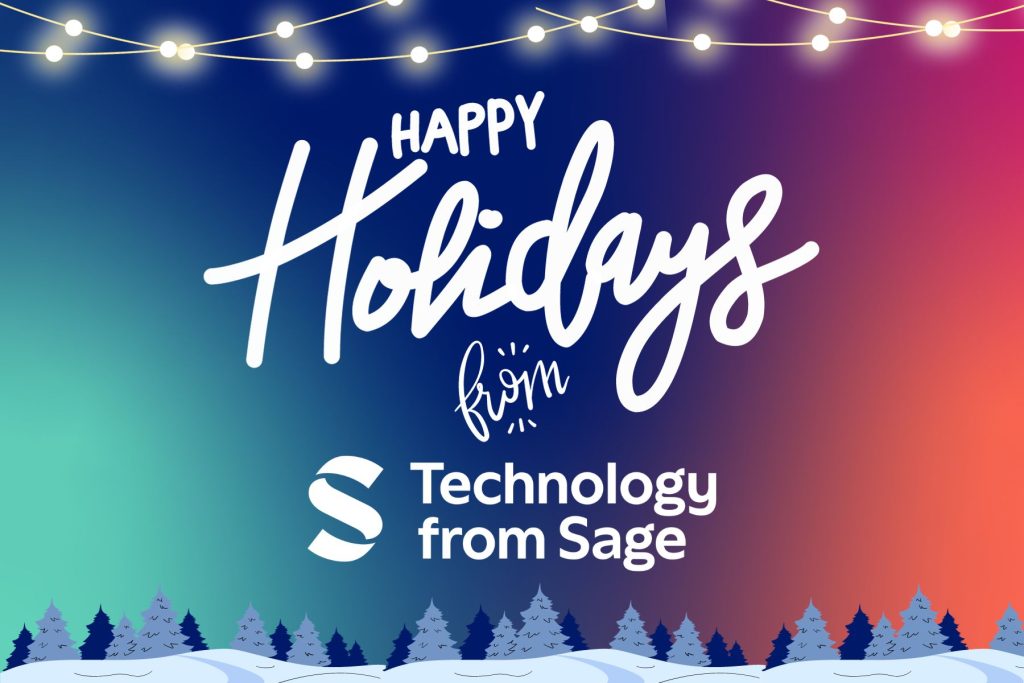
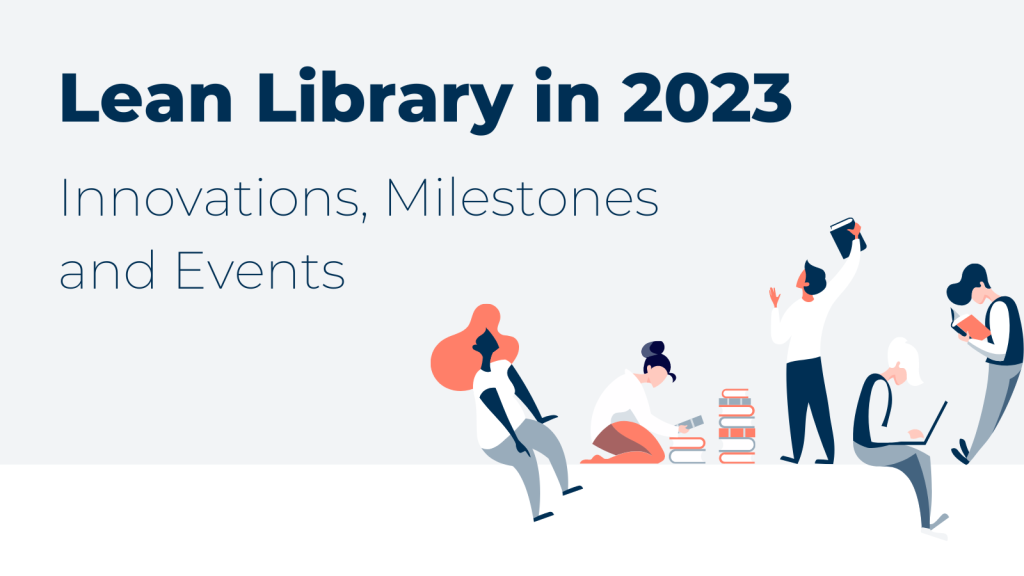
As we near the end of 2023, it’s time to take a trip down memory lane and reflect on what has been a fantastic year for Lean Library: A resource access and workflow services tool for libraries.
Lean Library has undergone growth and major development this year, thanks to our customer loyalty, feedback, and new university partners. Here’s what happened in 2023…
Libraries work diligently to curate the best collections, resources and services to support their patrons. However, librarians are often the unsung heroes on and off campus, with students and researchers not properly utilizing (or even being aware of!) the extent of library services and resources.
Every day of 2023, Lean Library promoted and increased awareness of libraries by seamlessly bringing library content and services into patrons’ online workflows via the Lean Library browser extension (whether they were on Google, PudMed or beyond). This made patrons’ lives easier, improving their productivity and saving them time and money. And with over half a million downloads of the browser extension, Lean Library made a big impact around the world, as demonstrated in the infographic below:
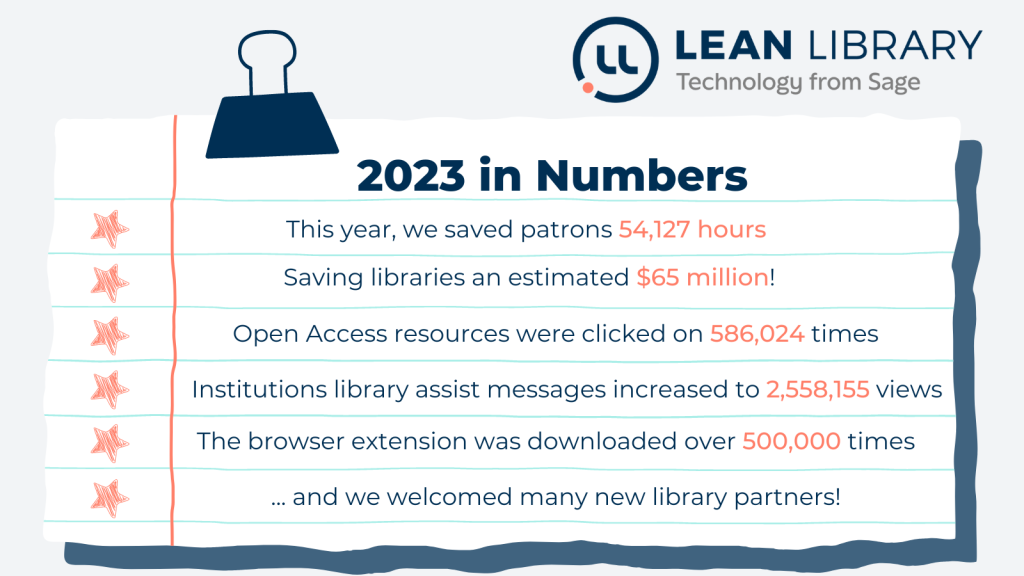
In 2023, we completely redesigned Lean Library and improved the browser extension to launch on all major web browsers, including Google Chrome, Microsoft Edge, Opera, Mozilla Firefox, and Safari. This launch marked a significant step in Lean Library’s journey as the most comprehensive access broker and workflow tool with a goal to make learning and research workflows smoother than ever before.
The redesign was driven by invaluable feedback from librarians, students, and researchers. We completely revamped the browser extension to be quicker, sleeker, and better than before, with:
Useful stats and insights are key to any library in demonstrating the value of a technology they implement. That’s why Lean Library launched a new Stats Insight Dashboard that provides insights on Lean Library’s stats on real-benefit factors including:
This takes Lean Library beyond raw statistics to unveil the real value that Lean Library brings to institutions, making it simpler for librarians to demonstrate its value as a must-have tool. The impactful insights enable libraries to build a story around their patron’s usage and visualize the positive impact of Lean Library in transforming the library’s visibility and usage.

The Alternatives feature is a core Lean Library feature that helps patrons access digital resources easily in alternative ways. In 2023, a series of improvements were released to Lean Library, dubbed ‘Alternatives 2.0’, to better support the library in uniting their diverse range of collections in the open web, from print to digital. We strive to be the solution that brings together these rich, library-held collections to users, when they would not typically go to the library environments to find them. The Alternatives 2.0 improvements are as follows:
Zurich University of the Arts implemented Lean Library to enhance their user-centered library strategy and make patrons aware of the many great resources they have access to – thanks to their library. They utilized Lean Library’s enhanced content integration feature to surface the library’s ‘Very Short Introductions‘ collection, which offers a concise and original introduction to a wide range of subjects. By surfacing this collection on Wikipedia and other sites, it promotes it to patrons at point of need.

Often Wikipedia is the starting point for basic research. By linking to the Very Short Introductions collection, we can inform our students and other members of the university of additional valuable information the library licences, and which patrons might not be aware of.”
Simone Welti, Library Information Specialist, Zurich University of the Arts
In July 2023, Kennesaw State University Library implemented Lean Library to promote and drive usage of its digital collections. The library saw an drastic increase in library collected usage after implementing Lean Library, growing from 88 to 3,355 library resources accessed in just 4 months. That’s a whopping 3,712% increase, clearly highlighting the valuable Lean Library unlocks for both the library and patrons.
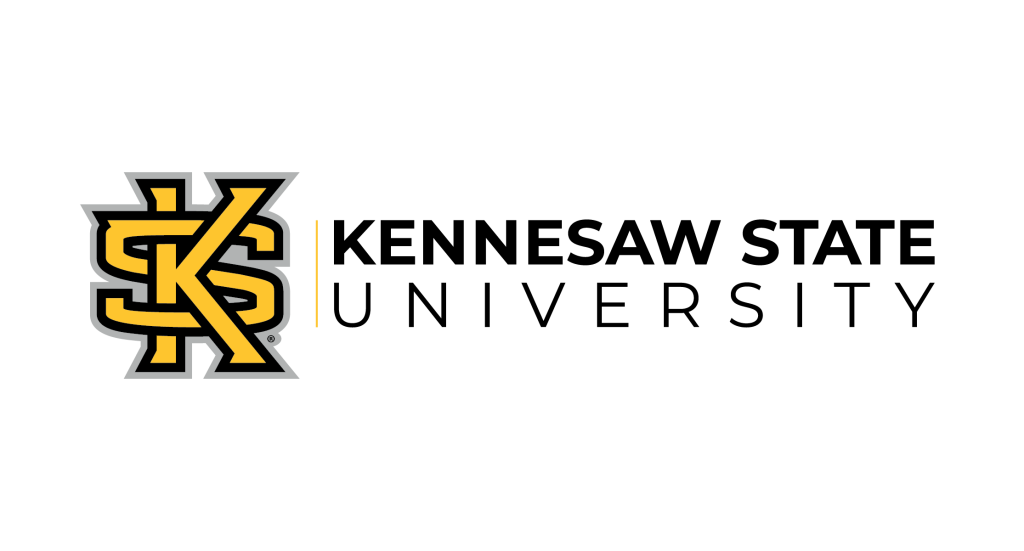
Lean Library has been instrumental in helping students and faculty become aware of the breadth of resources they can access through our subscriptions, particularly those provided through academic publishers.
Karen Doster-Greenleaf, Director of Research & Instructional Services/Librarian Associate Professor at Kennesaw State University
The service makes my work in research and document finding that much easier for me. Thank you!”
Student, Kennesaw State University
I started using Lean Library when I started researching my dissertation and realized I couldn’t possibly go through 20 different pages of Google Scholar, figuring out if I had access to them. It’s saved me a lot of time.”
BA Student, University of Lincoln
Lean Library is a very useful tool, especially for students, who often forget about the search tools offered by the library… One of the best things is its human team… we are taken very good care of.”
Librarian, University of Extremadura
2023 has been a year full of many Lean Library webinars, conferences, and events that gathered librarians from all corners of the world – from the United States to Europe to Australia. We’ve been delighted to grow our connections and relationships with libraries across the globe and it has been a memorable journey for all of us at Lean Library.
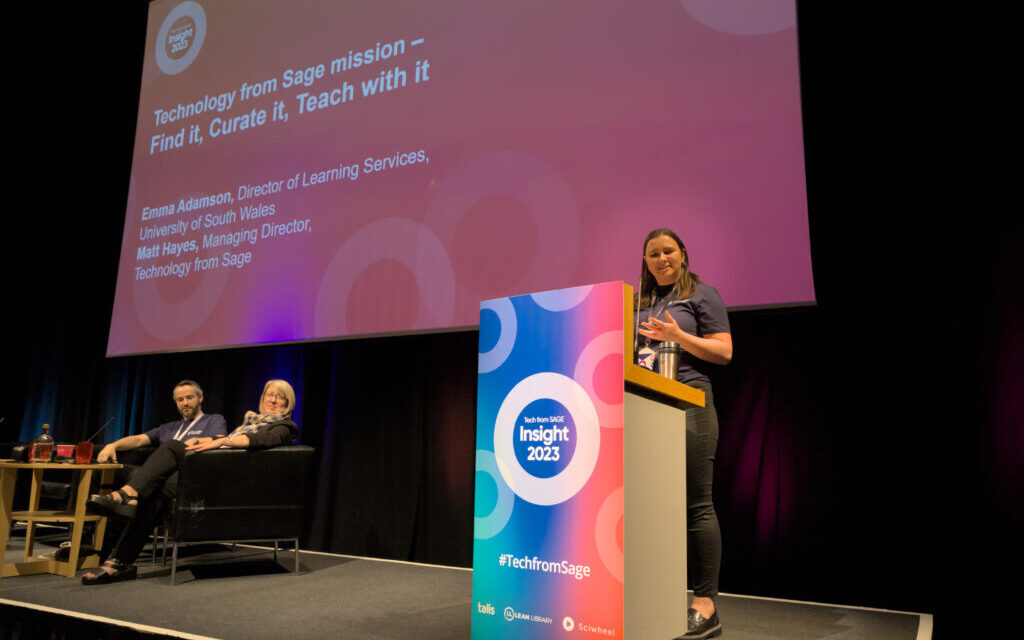
Lean Library’s user community came together in-person at the inaugural Tech from Sage Insight in Birmingham, UK. The event connected users to learn best practice, network, and workshop hot topics like AI in academia or the knowledge gap between librarians and students. Attendees gained insights from experts, learned about evolving needs of patrons, and explored ways to enhance their library through technology. It was a librarian’s dream event, but don’t worry if you missed out as the talks are still available here.
It was an honor to host an engaging in-person event at University of Salford, diving into the massive role academic libraries play in supporting student success and the challenges they face. University of Salford library presented on how they’ve used Lean Library to ensure students can seamlessly access vital study materials and bridge the knowledge gap between the library and students.
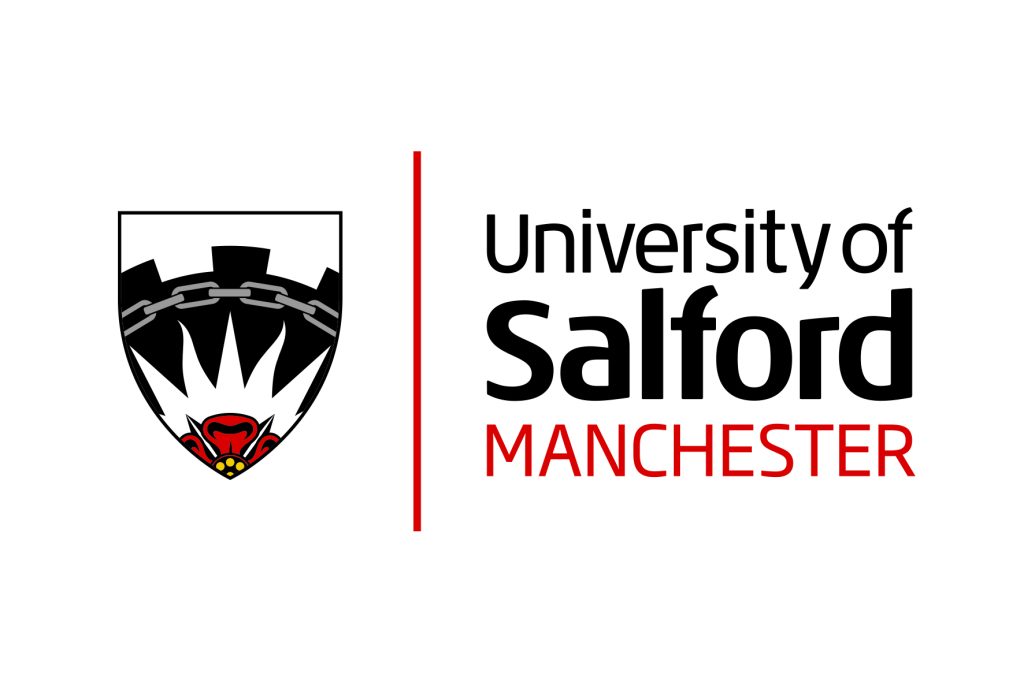
Lean Library had a blast presenting at various conferences throughout the year, including these sessions at ER&L in Texas and ACRL in Pittsburgh:
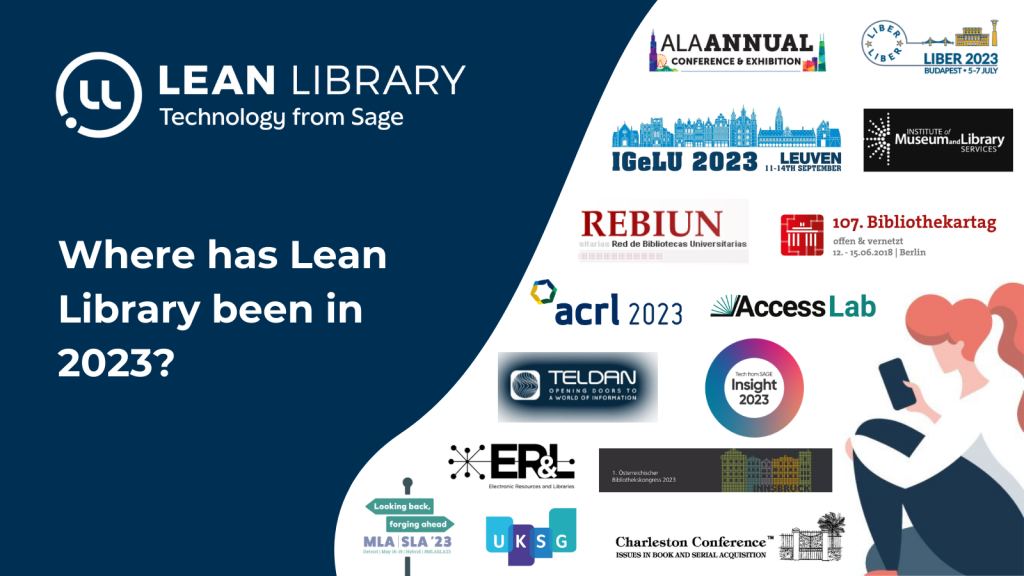
The team at Lean Library thank our university partners for a great year and look forward to connecting more libraries with their patrons in 2024. If your library is contemplating an access broker, looking to streamline access and drive usage of library holdings, or wants support moving toward a patron-centric approach, get in touch below to arrange a demo of Lean Library today.
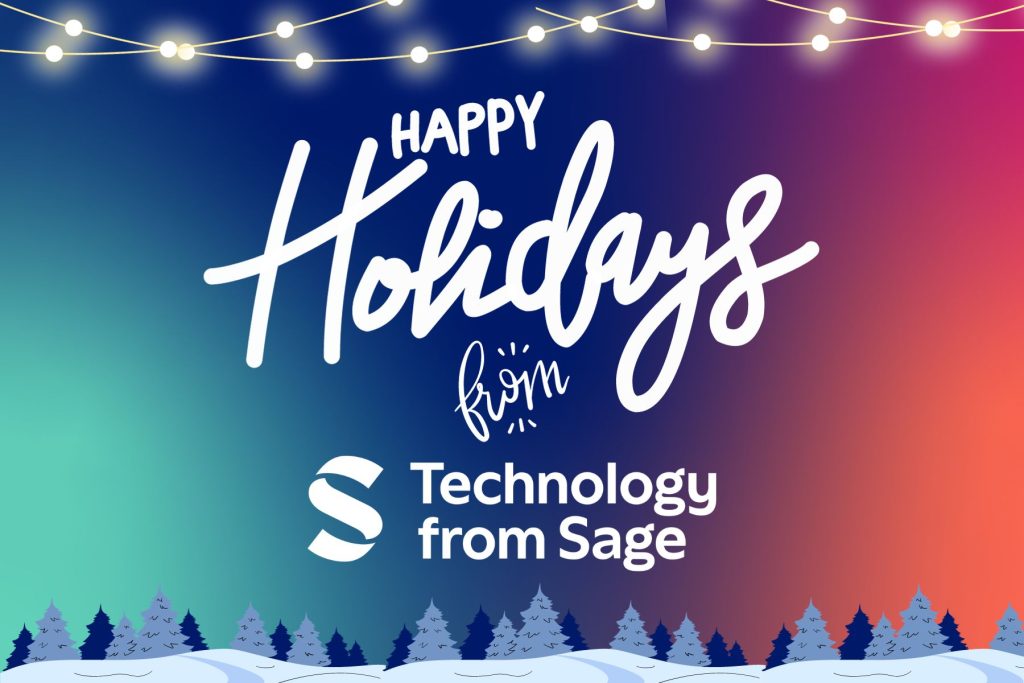
When conducting our research for our latest report Librarian Futures Part III, we asked librarians and library leaders about their visions of the future: which skills do they see as essential to develop in the short, medium, and long-term? We had a range of responses, but a few points really stuck out to us:
It’s a good time to look to the future. We asked colleagues from universities around the world to reflect on the information in Librarian Futures Part III, and tell us where they see exciting opportunities and emerging challenges for 2024, and what their upskilling resolutions are for the year ahead.
If you haven’t yet read our latest report, Librarian Futures Part III: The Librarian Skills Landscape, download your copy below:
It would be remiss of me not to mention AI as a starter – the shift it will bring to all parts of society is akin to the changes wrought by the industrial revolution.”
Andrew Barker, Library Director, Lancaster University
“Looking from the vantage point of December 2023, to meet the challenges that 2024 will bring, I have reflected on the skills, or the understanding, I will need to ensure 2024 (and beyond) is a success and that the library I lead at Lancaster continues to be at the vanguard of sustainable innovation.
It would be remiss of me not to mention AI as a starter – the shift it will bring to all parts of society is akin to the changes wrought by the industrial revolution, and I need to begin to better improve my understanding of the opportunities and challenges (in that order) it is bringing.
It will have far-reaching consequences to libraries and librarians as we once again reframe our old skills to meet new opportunities, it will bring lots of opportunities, but we need to better understand the skills it will require from us – and for us to keep an open mind about the changes it will bring. It will change education, but once again our skills as librarians will ensure we prosper.
Secondly, I want to dive deeper into understanding the connectivity between being part of a university committed to sustainability and the resources we license and purchase – understanding that will ensure we are then able to drive change in the sector to think of new ways of delivering digital to our users without further dam aging the planet. Both big things to deal with to think about and upskill – but it is in the big changes where we will bring meaningful change. Bring it on!”
Skills never thought to be part of a librarian’s position description are now the norm. It hasn’t stopped and it doesn’t look like it is going to stop anytime soon.”
Hector R. Perez-Gilbe, Research Librarian for the College of Health Sciences, University of California
Librarians have been facing drastic changes in their professional world for the last couple of decades and I feel confident in saying that the most drastic changes within academic professions. Technology has impacted libraries in ways that revolutionized the librarian profession into challenges that are constantly changing. Skills never thought to be part of a librarian’s position description are now the norm. It hasn’t stopped and it doesn’t look like it is going to stop anytime soon. The new set of skills and knowledge required to keep up with current trends in information and information-seeking behaviors have taken us to places we never imagined.
When I was in library school, I never thought I would be involved in learning programming coding, or statistical understanding. As a medical librarian, I was always trying to stay ahead or neck and neck with the changes. Tough proposition at the time, so I enrolled in an epidemiology program and got my MPH. Data, analysis, and programming are the main topics in medical librarianship if you want to get elbow-to-elbow with the big leagues of medical information and clinical research.
Our role has shifted from reference desk to team members in clinical research and systematic review studies. Far from the librarian of 20 years ago. Librarians in all disciplines have to keep up with trends in their areas of expertise and the only way to do so is to go out of our comfort zone and learn new skills. One big accomplishment, non-librarian colleagues see us as an asset and team member to help achieve their professional goals. Let’s see where the next chapter will take us.
That is the beauty of this profession – our skills, ideas, and visions are transferrable across a wide range of settings.”
Hannah Rutledge, Director of Library and Information Services, Longwood Gardens
When Librarian Futures Part III was in the research phase, I was at the University of Pennsylvania Libraries as director of their biomedical library. Now, reading the published report, I’m the Director of Library and Information Services at Longwood Gardens, immersed in the world of botanical and horticultural librarianship. That is the beauty of this profession – our skills, ideas, and visions are transferrable across a wide range of settings. Naturally, I feel somewhat removed from the academic library world, yet there are numerous parallels, many of which are clearly outlined in Librarian Futures Part III report, allowing me to feel inspired and right at home.
If I may be honest, the report left me with more questions. I was intrigued but not fully surprised by the different perspectives of library leaders and frontline librarians. This shows not only difference of priorities (which is expected), but it may also show the opportunity for a gap in communication or understanding. Are they communicating these priorities to each other? Does this impact the availability of or support for professional development? Furthermore, I’m curious as to the breakdown of “library leaders,” as there are various levels of library leaders with different priorities in the same institution (i.e. medical library director vs dean of libraries). Now that the librarian skills landscape has been identified, what is the next step? How can we help librarians advocate for the training and development they need? What additional work is needed to accurately identify those interests, needs, and opportunities?
To run off to the gardens now…At Longwood Gardens we have horticultural students and interns (domestic and international), executive leadership fellows, as well as staff and researchers seeking information from various fields ranging from landscape architecture to garden design to sculpture, from turf care to orchids to woody plants. The teams under my purview include the library, archives, digital asset management, plant information and mapping, and docents.
My own primary goals for the new year:
These are vague goals, lacking any actionable tasks, outcomes, or timelines. At this point, they serve more as a guide. With Librarian Futures Part III in tow (as well as the previous two), I intend to utilize the data and insights to help create a better library, archives, and information services – for our users, for the success of the organization, and most importantly, for my staff.
Librarians play a large role in connecting their communities as bridges between people and organizations. Information is the tip of the iceberg.”
Christine Quirion, Chief Operating Officer, Skilltype
The Librarian Futures III report findings show high representation of information science skills across the community, suggesting a comfort zone. Librarians play a large role in connecting their communities as bridges between people and organizations. Information is the tip of the iceberg. The libraries Skilltype works with encourage re-skilling in areas such as AI, online learning, and data literacies so the library can be a full partner in teaching and research. Based on the report’s findings, Skilltype will highlight skills that help information professionals increase their impact and curate their careers in 2024. Skills that I expect to see more of include community outreach, instructional design, project management, assessment, design thinking, marketing, and user experience. These are essential skills to uncover community needs, communicate effectively with stakeholders, and maximize the library’s impact.
Across my academic library career, my skill range extended organically every few years. I started as a digitization supervisor and grew into leadership, UX, and digital development. Now, I’m part of a startup for libraries. Each time I extended my range, my network grew to include colleagues from campus IT, student services, or teaching & learning. New people and perspectives can also be catalysts for growth.
Our research has found that in today’s academic world, the roles of IT and librarians are converging more than ever.”
Richard French, Product Manager, OpenAthens
Our research has found that in today’s academic world, the roles of IT and librarians are converging more than ever. Embracing technology has become pivotal for librarians, forming an integral part of their responsibilities. At OpenAthens, our focus for the next year is on simplifying our products and empowering librarians with user-friendly tools, enabling them to adeptly navigate the increasing significance of technology within their roles.
Thank you to Andrew Barker, Hector R. Perez-Gilbe, Hannah Rutledge, Christine Quirion and Richard French for their contributions to this blog post.
Where has Larry the Lean Library Llama been in 2023? December 11, 2023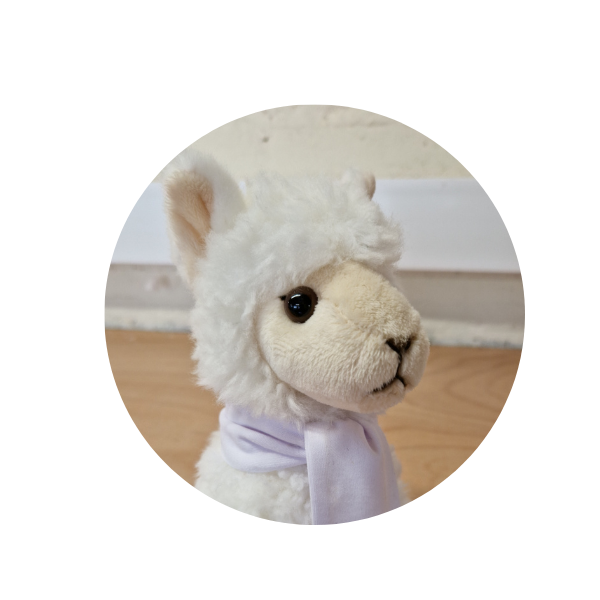
As many of you may know, we have a furry mascot for our Lean Library browser extension – isn’t he cute? The Lean Library Llama joins us at events and conferences, listening in as we talk to academic librarians from all over the world about Lean Library, the easy-to-use browser extension which simplifies online access to library content. We’ve named our Lean Library Llama Larry, but we’ve heard librarians and students name their llama all different names: from Allama Morisette to Louisa.
Do you want to find out where Larry the Llama has been this year and what he’s been up to? Read on to discover the travels of our four-legged friend…
Larry was lucky enough to travel to Austin, Texas for Electronic Resources and Libraries Conference (ER&L) 2023 back in March and had a great time on the stand chatting to librarians about their library.
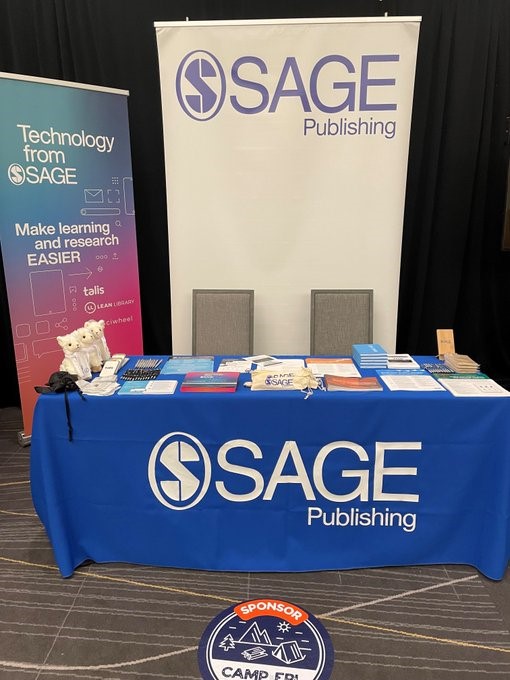
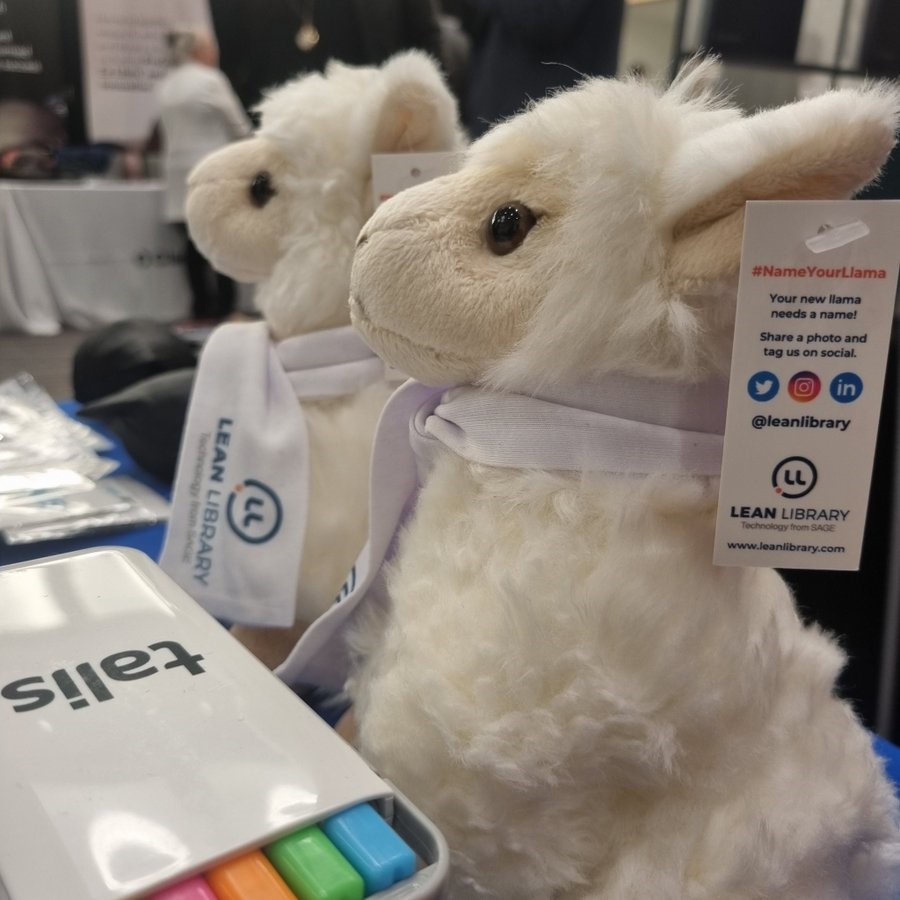
We were delighted to have three sessions at ER&L Conference 2023, ranging from future-proofing access to patron reference management.
Find out more about our sessions below:
In April, Larry and his friends joined us at our inaugural Tech from Sage Insight Conference in Birmingham at The REP Theatre. It was a jam-packed two days for academic librarians with workshops and presentations on Higher Education topics, ranging from the risks and opportunities of AI to rethinking the library of the future.
We ran a giveaway during the two-day conference for six librarians to win their own llama to take home. All they had to do was tweet about the conference using #TechfromSage. The lucky winners were Lowri, Jackie, Haylee, Hazel, Fiona and Chantal. We loved seeing the photos of the llamas from the winners:
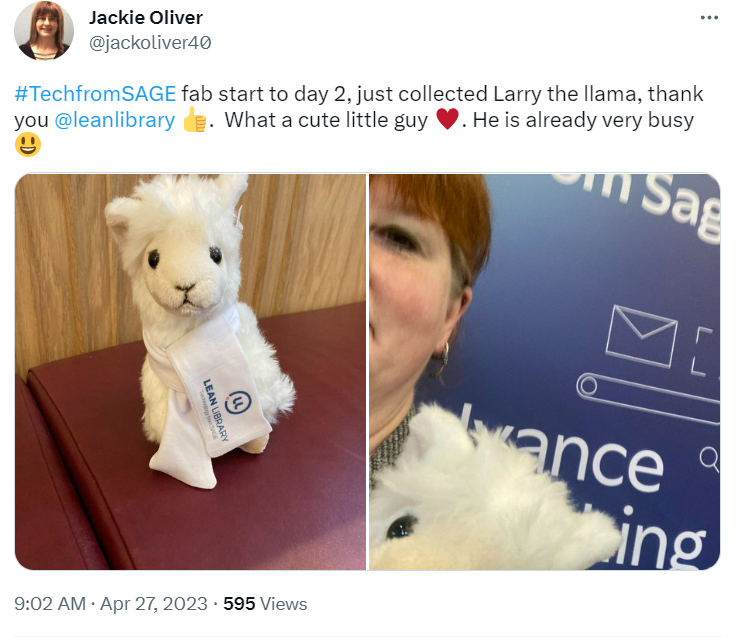
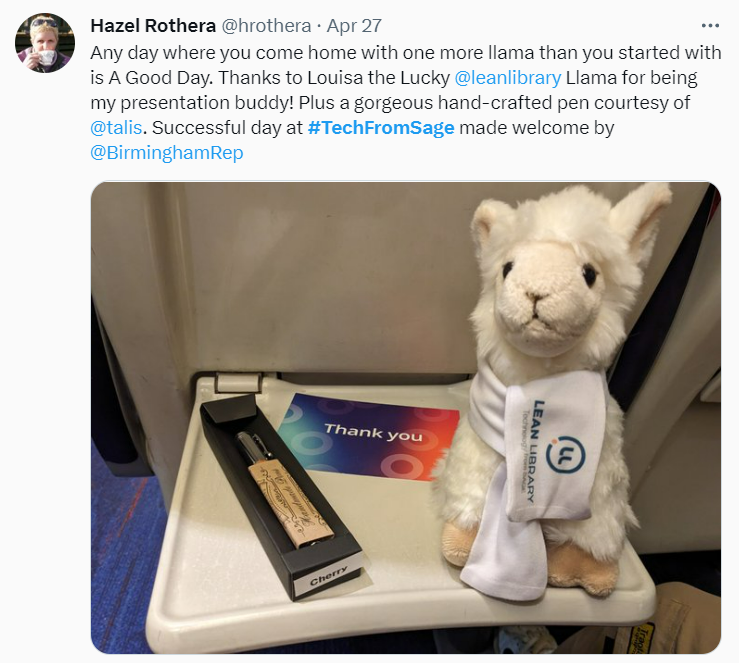
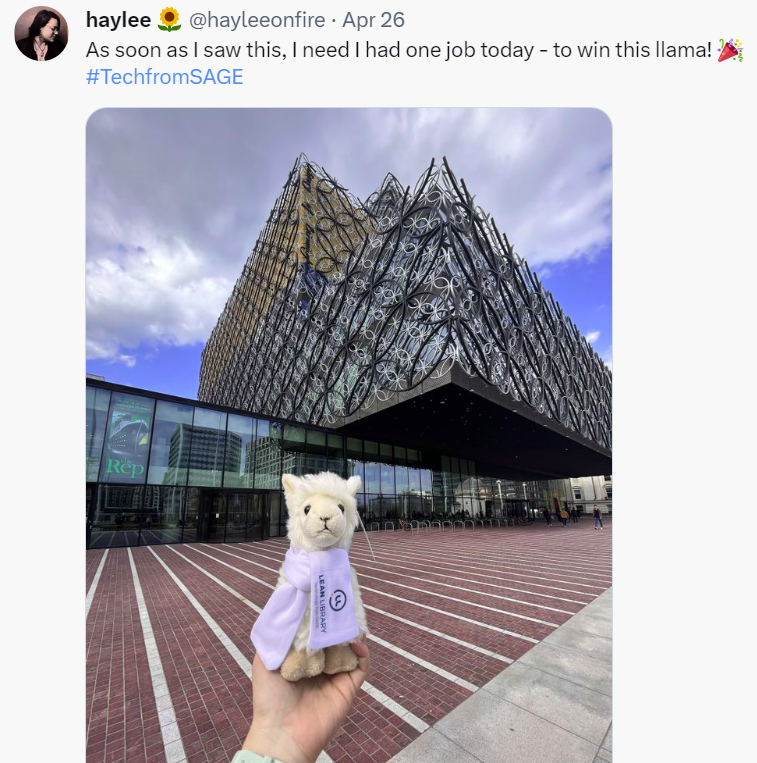
In May, Larry the Llama joined the Technology from Sage team at REBIUN Asamblea Conference in Alicante, Spain – a wonderful city for an academic conference and we loved meeting so many librarians from Spanish institutions.
Congratulations to Juana from Universisidad de Alicante who won a llama at the stand – we’re sure that this llama has gone to a fantastic home.
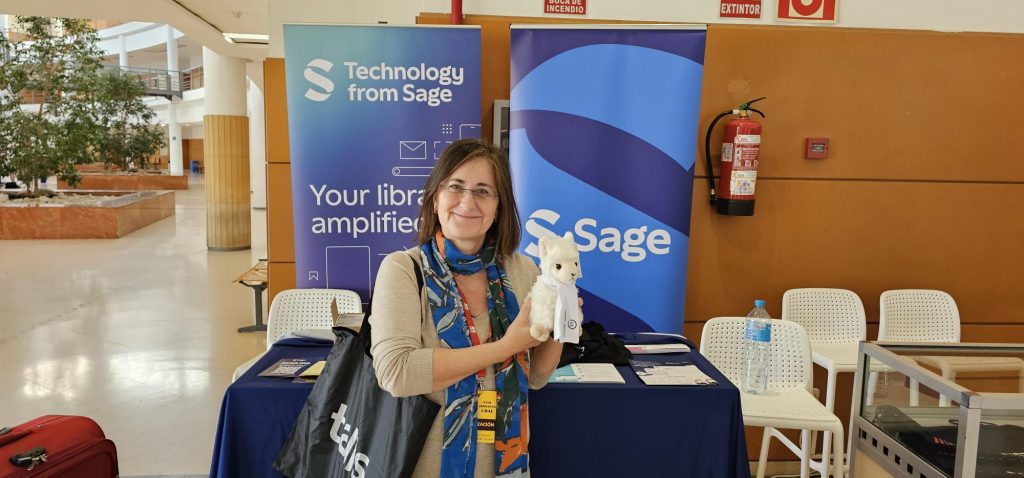
In September, Larry and his friends flew to Kennesaw in the United States (they’re becoming very well-travelled llamas) to promote the Lean Library browser extension at a usage driving event for students, run by Kennesaw State University Library.
We absolutely loved seeing the fantastic photos of the llamas enjoying a cold beverage and hanging out in the Lean Library branded paper bags. We felt it was a fantastic way for Kennesaw State University Library to celebrate that students now had access to Lean Library for their research.
Discover more about how Kennesaw State University Library have used Lean Library to increase their patron usage of digital collections in our case study.
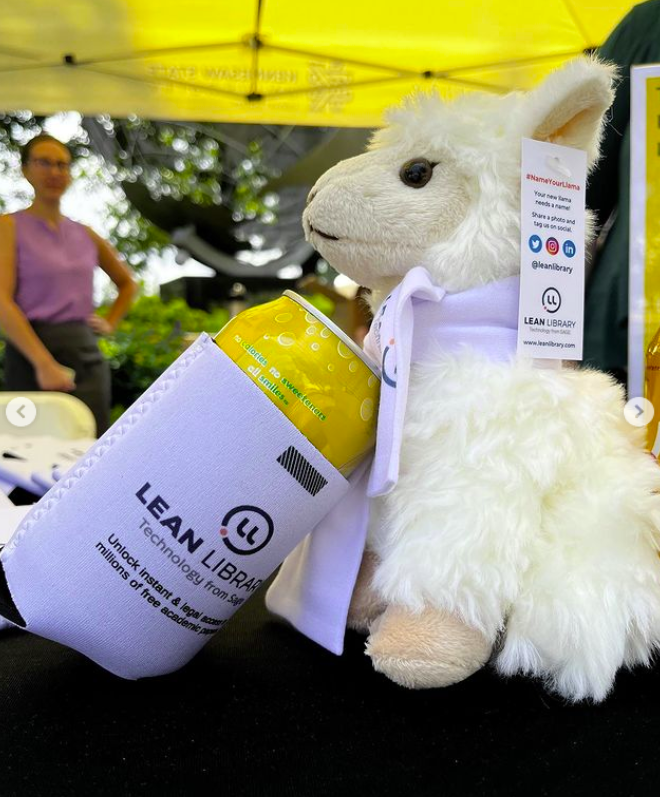
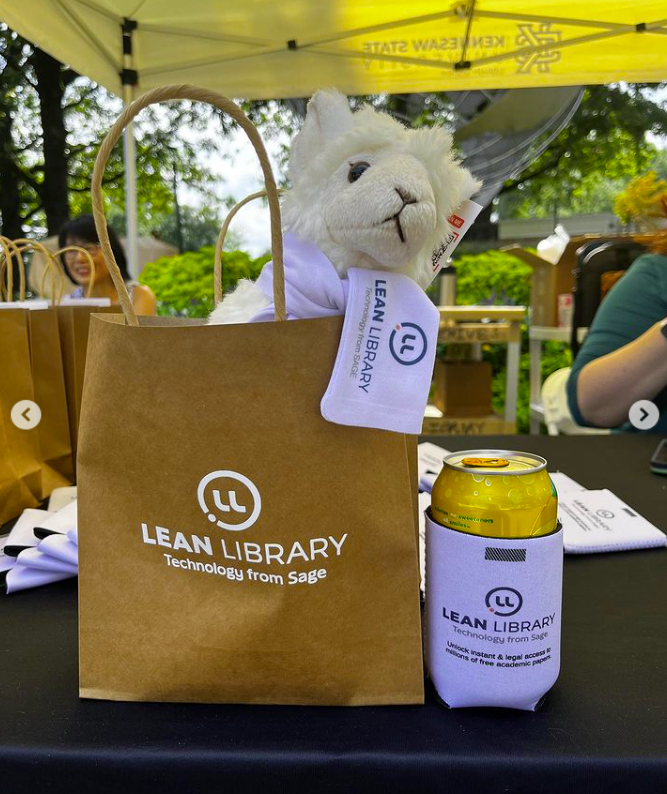
In November, Larry the Llama visited a couple of institutions within the United Kingdom. First stop, was University of Derby Library where three llamas were part of a competition for students to install the Lean Library browser extension and a gain a new study buddy at the same time. We absolutely loved that the three llamas who had found new homes were named Allama Morisette, Banana- Llama and Bubble.
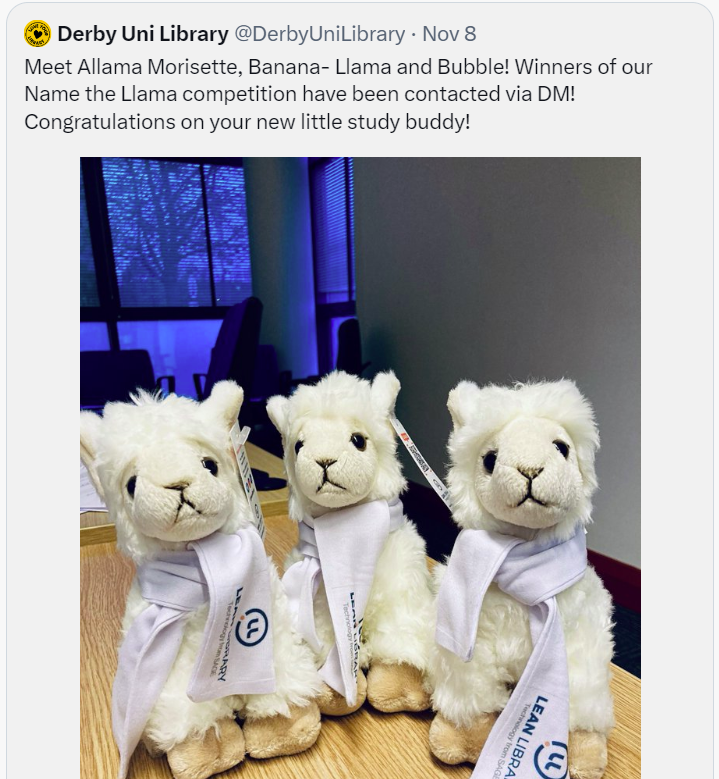
Larry and his friends travelled further up north to Lancaster, United Kingdom to visit University of Lancaster Library and meet some students. The llamas became part of the Lean Library Llama Digital and Usability Outreach Team and we’ve heard reports that they’ve been patrolling University of Lancaster Library to tell students about how Lean Library makes their research process even easier.
We loved the Lean Library tags on the llamas that the University of Lancaster librarians created!
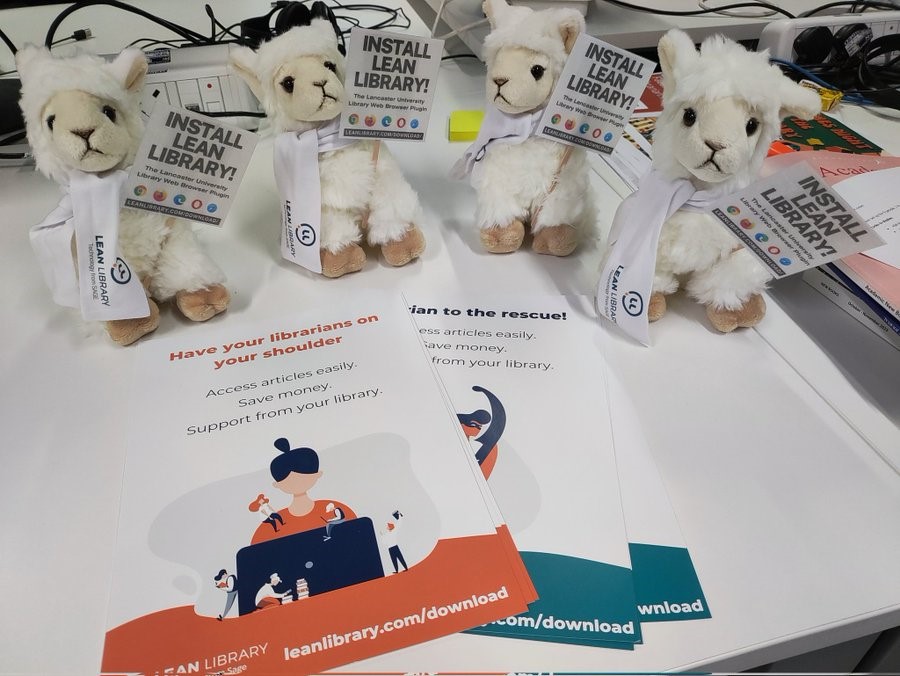
Larry the Llama visited Barbie Land in the summer to be Barbie’s loyal travel companion as she went to the Real World. This may have happened in Larry’s imagination, but we’ll leave that up to you to decide!

We hope 2024 brings even more travels for Larry the Lean Library Llama! Stay tuned for more adventures around conferences and institutions around the world.
Read our blog post to find out more about what Lean Library has been up to in 2023!